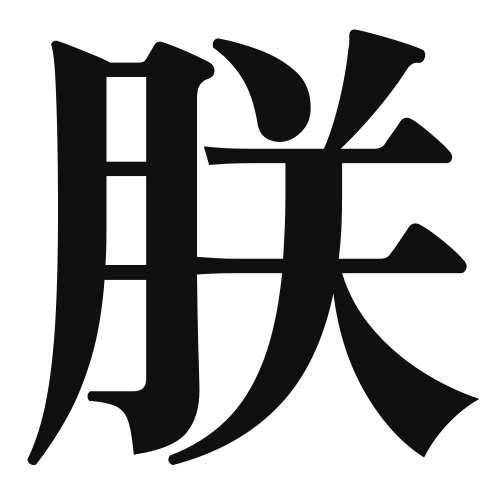1. Overview of Meaning
The kanji “朕” (pronounced “chin”) is a first-person pronoun used by emperors in Japan and China. It conveys a sense of majesty and authority, often translated as “I” or “we” in English, but specifically denotes the self-reference of a sovereign.
2. Formation and Radical
Formation of the Kanji: The kanji “朕” is classified as a phonetic-ideographic character (形声文字). It combines the radical for “tree” (木) with a phonetic component that suggests its pronunciation.
Radical: The radical of “朕” is 木, which means “tree.” This radical often relates to nature or growth, although in this case, it contributes to the overall structure of the character rather than its meaning.
3. Examples of Usage
Common Words and Phrases: “朕” is primarily used in historical or formal contexts, such as in literature or ceremonial language. It is not commonly used in everyday conversation.
Example Sentence in Daily Conversation: While “朕” is rarely used in modern dialogue, one might encounter it in historical texts or discussions about imperial history, such as: “In ancient times, the emperor would refer to himself as 朕 to emphasize his divine right to rule.”
4. Synonyms and Antonyms
Similar Kanji: A similar kanji is “我” (pronounced “ware”), which also means “I” but is used more broadly and can refer to anyone in a more general sense, unlike “朕,” which is exclusive to emperors.
Opposite Meaning Kanji: An antonym could be “汝” (pronounced “naru”), which means “you” and is used to address others, contrasting with the self-referential nature of “朕.”
5. Cultural and Historical Background
Relation to Japanese Culture: The use of “朕” is deeply rooted in the history of the Japanese imperial family, symbolizing the divine status of the emperor. It reflects the traditional view of the emperor as a semi-divine figure.
Proverbs and Idioms: While there are no specific proverbs that include “朕,” its usage in historical texts often evokes themes of authority and governance, which are prevalent in Japanese literature and folklore.
